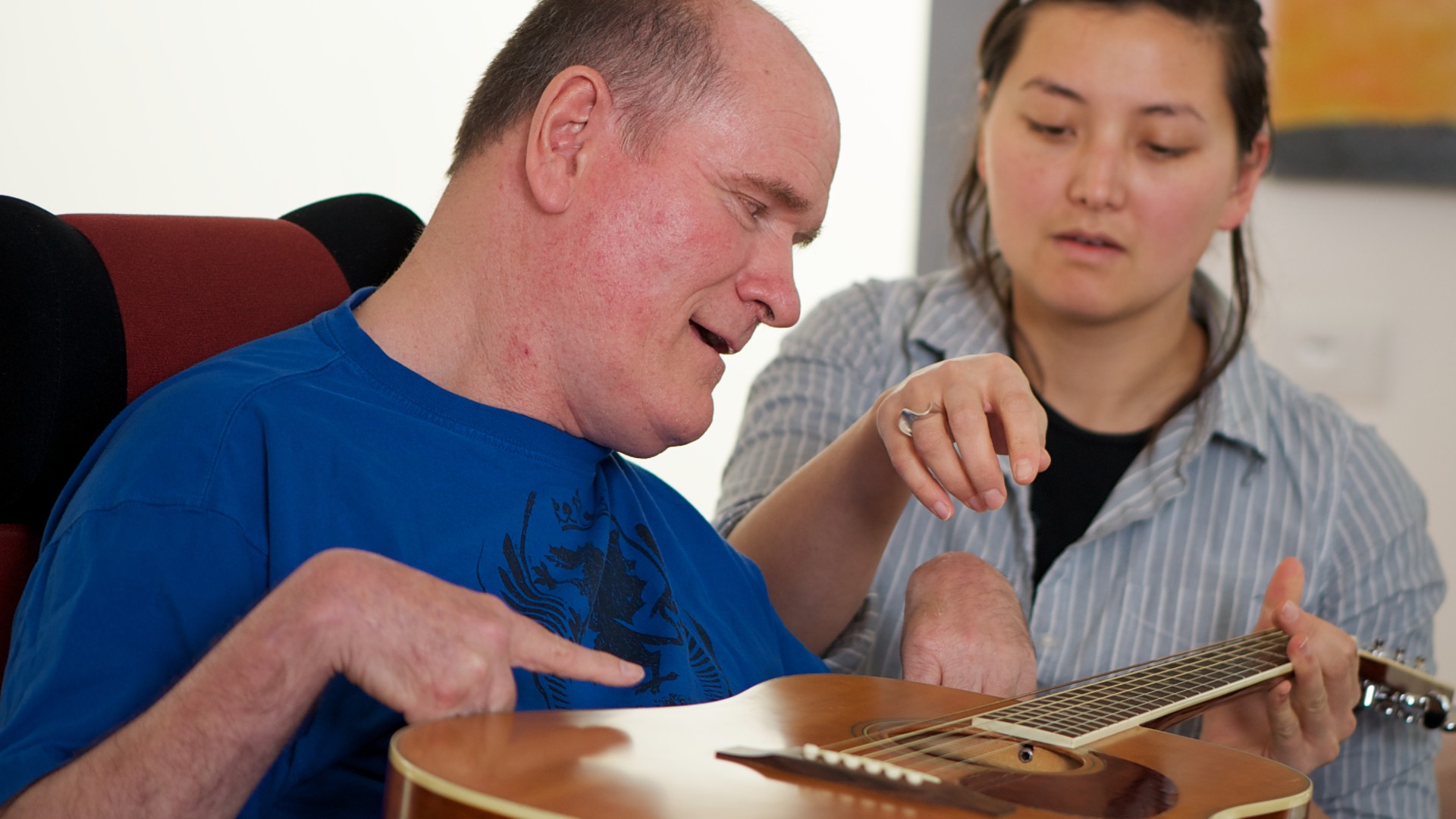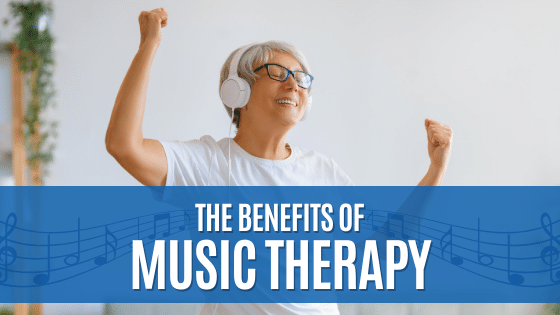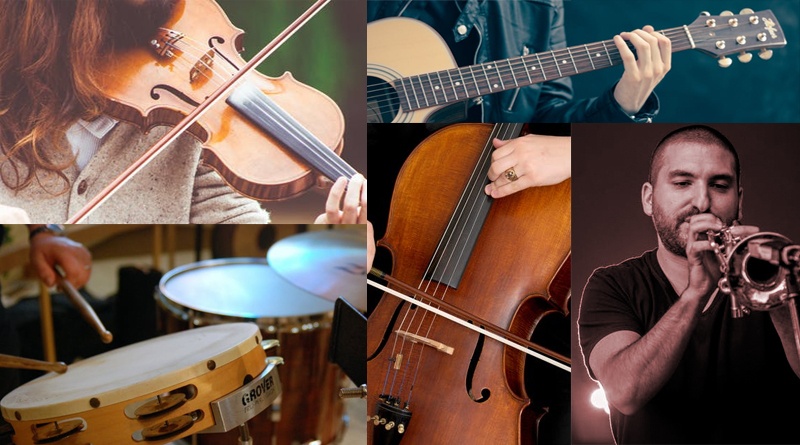Music therapy is a therapeutic technique that aims to enhance people's mental health and overall well-being by utilising music's inherently mood-lifting effects. A music therapist is a person who utilises music as a form of therapy to assist people with mental illnesses to feel better.
This type of treatment may be beneficial for persons suffering from depression and anxiety, as well as improving the quality of life for those suffering from physical ailments.
About
A music therapist is an allied health profession that employs music to help individuals with their physical, psychological, and social needs. Before delivering suitable therapy, the licenced music therapist examines each client's talents and needs. Goal-oriented interventions include composing music, writing songs, singing, dancing, listening to music, and discussing music. As a consequence of musical participation in the therapeutic setting, the client's skills are strengthened and transferred to other elements of his or her life.
Music therapy can also help those who have trouble expressing themselves vocally communicate more effectively. According to research in the field, music therapy is effective in facilitating movement and overall physical rehabilitation, motivating people to cope with treatment, providing emotional support for clients and their families, and providing an outlet for the expression of feelings.
Types of Music Therapy
Music therapy can be an active process in which clients participate in the creation of music or a passive approach in which clients just listen to or respond to music. Some therapists may employ a hybrid strategy that includes both active and passive musical encounters.
- Analytical music therapy enables you to communicate your unconscious ideas via spontaneous musical "conversation" such as singing or playing an instrument, which you may then reflect on and discuss with your therapist.
- Benenzon music therapy blends certain psychoanalytic notions with the process of composing music. The quest for your "musical sound identity," which identifies the exterior sounds that most closely fit your interior psychological condition, is part of Benenzon music therapy.
- CBMT (cognitive behavioural music therapy) is a treatment that combines cognitive behavioural therapy (CBT) with music. Music is utilised in CBMT to reinforce and change certain behaviours. Listening to music, dancing, singing, or playing an instrument are all examples of organised, not unstructured, approaches.
- Community music therapy is a type of music therapy that focuses on utilising music to help people change in their communities. It's done in a group environment and necessitates a high level of participation from each participant.
- Nordoff-Robbins music therapy, also known as creative music therapy, entails the therapist playing one instrument (usually a cymbal or drum) while the therapist plays another. Music is used in the improvisational process to aid in self-expression.
- GIM (Guided Imagery and Music) as taught by Bonny: Classical music is used in this type of treatment to enhance the imagination. You describe the sentiments, sensations, memories, and visuals you have when listening to music using this approach.
- Voice psychotherapy: In this approach, you connect with your emotions and impulses using a variety of vocal exercises, natural sounds, and breathing methods. This exercise is designed to help you feel more connected to yourself.
Issues Faces
People who are dealing with the issues like Alzheimer's disease, anxiety or stress, autism, cardiac conditions, chronic pain, depression, diabetes, difficulties with verbal and nonverbal communication, emotional dysregulation, feelings of low self-esteem, headaches, impulsivity, negative mood, post-traumatic stress disorder (PTSD), problems related to childbirth, rehabilitation after an injury or medical procedure, respiration problems, substance use disorders, surgery-related issues, traumatic brain injury (TBI), trouble with movement or coordination may benefit from music therapy.
Research also suggests that it can be helpful for people with insomnia, obsessive-compulsive disorder (OCD), schizophrenia, stroke and neurological disorders. Music therapy is also often used to help children and adolescents: develop their identities, improve their communication skills, learn to regulate their emotions, recover from trauma, and self-reflect.
Benefits From Treatment
Music therapy may be extensively customised, making it appropriate for people of all ages, even very young toddlers. It's also adaptable, offering benefits for those with varying degrees of musical skill as well as mental and physical health issues. Memory, emotions, locomotion, sensory relay, some involuntary activities, decision-making, and reward are all influenced by brain areas that are activated.
Lower heart rate and blood pressure, relax muscle tension, release endorphins, relieve stress and encourage feelings of calm for children and young adults with developmental and/or learning disabilities, strengthen motor skills and improve communication. Research has also shown that music can have a powerful effect on people with dementia and other memory-related disorders. Overall, music therapy can help people experience more good emotions such as tranquilly, euphoria, confidence and empowerment, and emotional closeness.
Education in Music Therapy
Music therapy, psychology, music, biological, social, and behavioural sciences, disability, and general studies are all included in the undergraduate programme. The first year of study includes hands-on experience with music therapy methods and strategies. The student is qualified for admission to the Certification Board for Music Therapists, Inc. certification test after completing the AMTA-approved academic programme and internship. The student receives the accreditation Music Therapist-Board Certified after completing the CBMT's national test (MT-BC).
The list of Institutes in India offering courses related to Music Therapist are:
- Association of Music Therapy, Delhi
- Chennai School of Music Therapy, Chennai
- MET Institute of Alternative Careers, Mumbai
- Nada Centre for Music Therapy, New Delhi
- The Indian Institute of Medical Music Therapy - IIMMT, Chennai
- Sri Balaji Vidyapeeth, Puducherry.
Individuals with a bachelor degree in a field other than music therapy may choose to finish an AMTA-approved university's degree equivalence programme in music therapy. The student in this programme completes only the needed curriculum and does not need to get a second baccalaureate degree. A bachelor degree is required for admission to the master's degree programme in music therapy. Although there is no AMTA-approved PhD degree in music therapy, certain colleges do offer music therapy training in conjunction with doctoral studies in related fields.
A career in Music Therapy
A career in music therapy is hard, gratifying, and distinctive for those interested in working with individuals of all ages and with various impairments. Music therapists serve in a variety of settings, including general and psychiatric hospitals, community mental health organisations, rehabilitation centres, daycare facilities, nursing homes, schools, and private practice. Music therapists assist active-duty military personnel, veterans, transitioning service members, and their families. Music therapists strive to immerse clients in musical experiences that create trust and complete involvement throughout their therapy.
Music therapists use a number of music-centred tools, approaches, and activities while working with military-affiliated clients, many of which are similar to those used in other music therapy settings. Individuals who are afflicted by mental diseases. If you have a mental health problem, music therapy can help you communicate and express yourself, explore your thoughts and feelings, improve your mood and concentration, and create coping skills. People who have been in pain for a long time. Music therapy can help with pain, anxiety, tiredness, and despair. Music therapy may be therapeutic if you have a drug addiction problem. In research, it has been shown to increase motivation and self-esteem.
Learn Music Online - Stay Home - Stay Safe
You may learn to play music from the comfort of your own home if you enjoy it. Meet our instructors, who teach piano, electronic keyboard, and guitar using a step-by-step method. You'll get our extra course "Voice Culture" for free when you sign up for an Online Music Classroom subscription.
We sell step-by-step Piano sheet music notation and MIDI files in our Music Library to learn from the comfort of your home!
See our buying guide for information on how to purchase a piano, electronic keyboard, or guitar.
Now is the time to join us!
It would be wonderful to be able to learn music at any time and from any location.
Enroll today at classroom.goldsmth.com.
Music Therapist (Therapy)
 Reviewed by Goldsmth
on
November 18, 2021
Rating:
Reviewed by Goldsmth
on
November 18, 2021
Rating:
 Reviewed by Goldsmth
on
November 18, 2021
Rating:
Reviewed by Goldsmth
on
November 18, 2021
Rating:















wonderful information
ReplyDeleteReally I enjoy your site with effective and useful information. It is included very nice post with a lot of our resources.thanks for share. i enjoy this post. Nutritionist in London
ReplyDelete